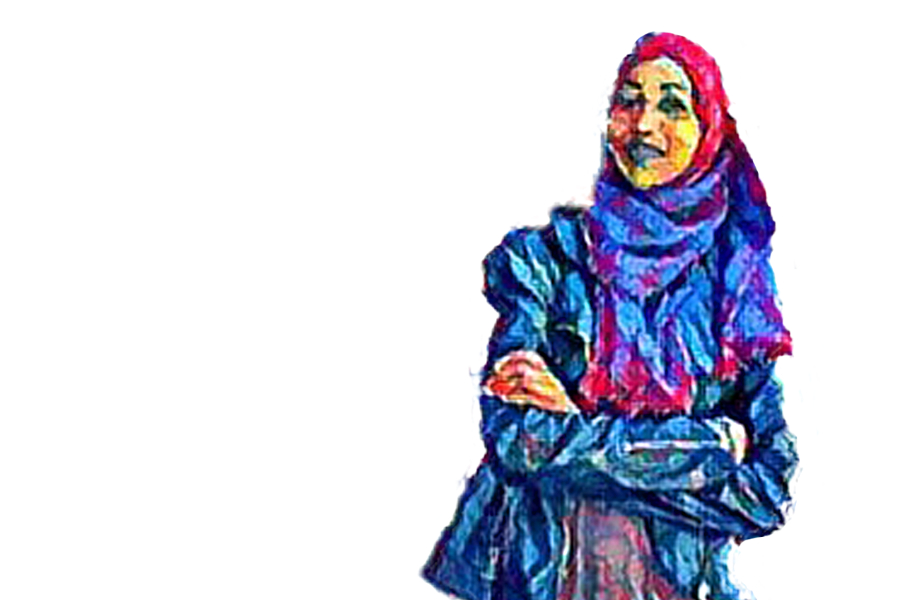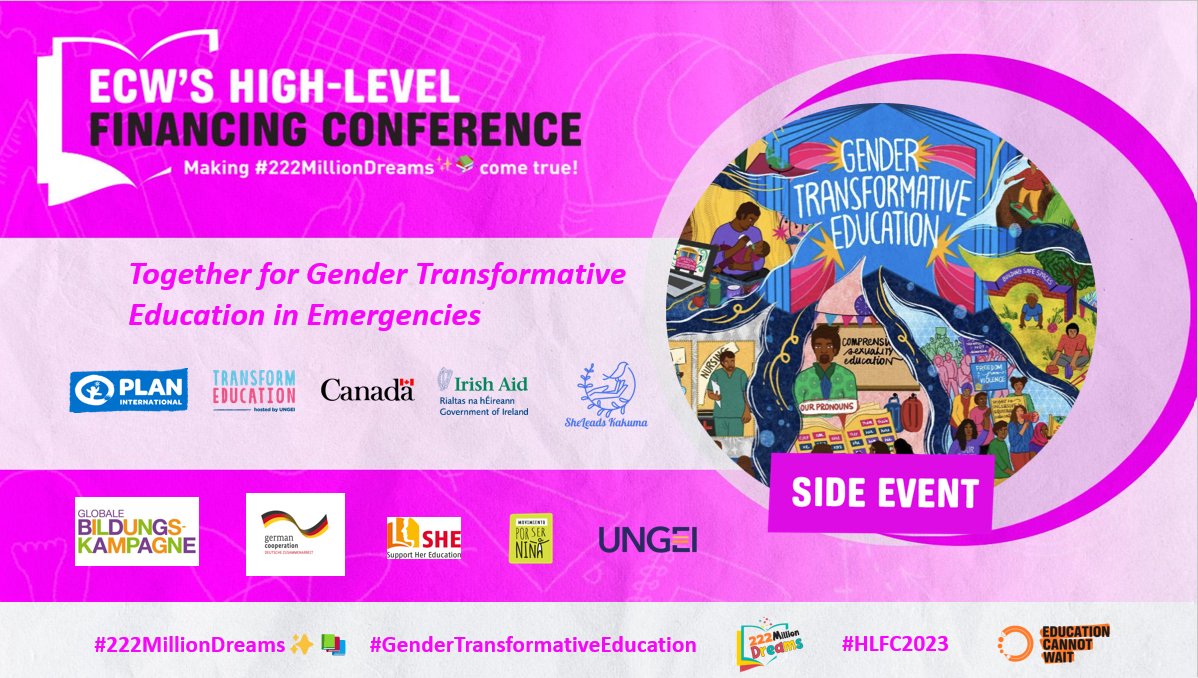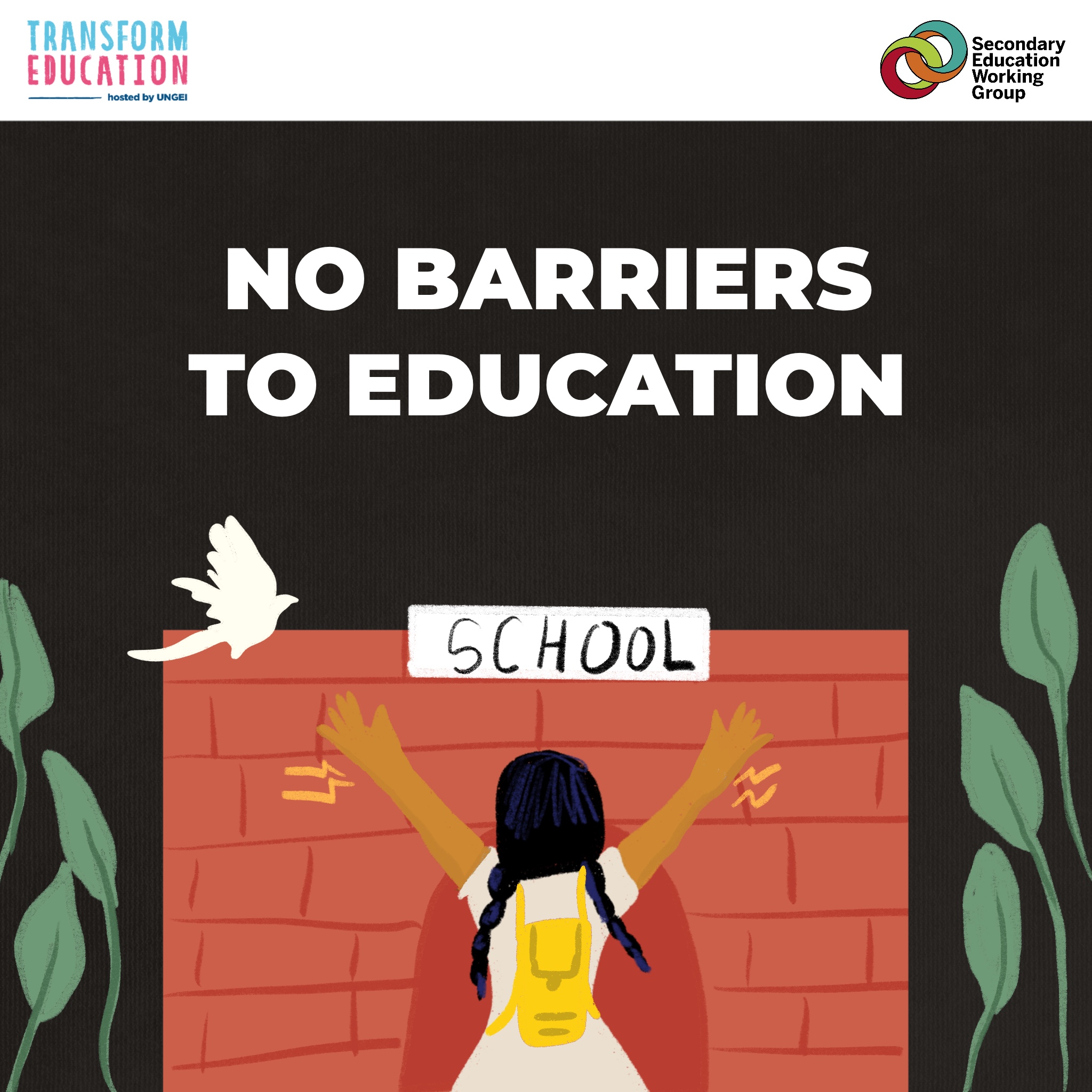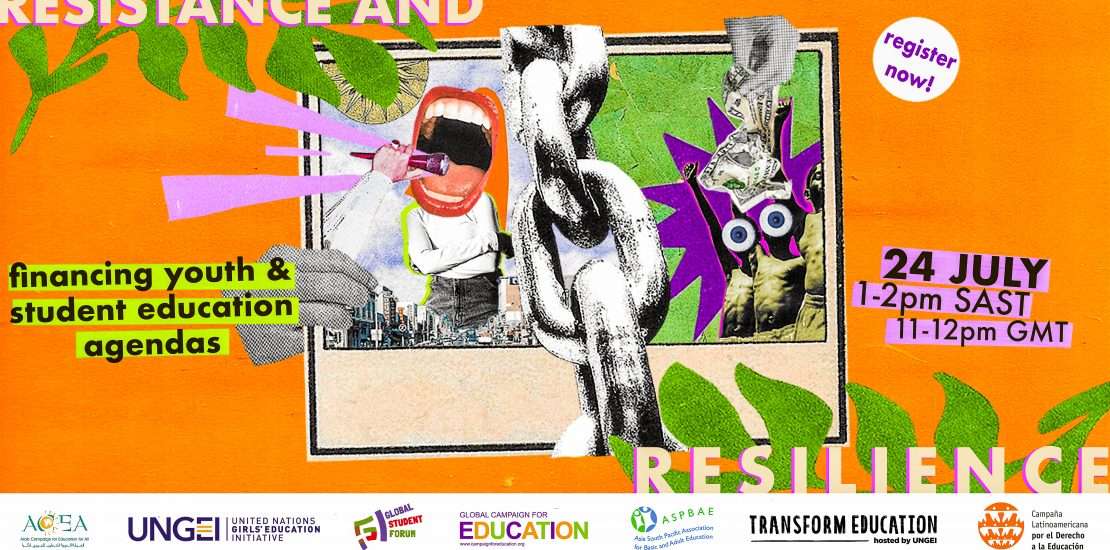Girls around the globe, including myself, are urging G7 leaders to invest in girls’ education at this week’s summit. After months of lobbying, letter writing, speaking and petitioning, the summit is less than a day away. As seven of the world’s richest and most powerful countries gather in Canada for the 2018 G7 Summit this week, we are on the edge of our seats: will they listen to us, and invest in girls?

One of our girl gang’s most prominent and fearless leaders is Fatuma — a young woman who has sparked a global following with her petition calling on G7 leaders to make the education of girls in crises a priority at this year’s summit. To date, her petition has garnered over 160,000 signatures and counting.
When Fatuma was just 7 years old, she and her family fled civil war in Somalia. Fatuma spent most of her childhood and adolescence living in Kenya’s Dadaab refugee camp — the largest refugee camp in the world. Life in the camp was difficult, but one thing gave her hope for a better future: attending school each day.
This fierce trailblazer is now a University of Toronto student in Canada — and she also happens to be one of my good friends. Recently, I had the opportunity to chill with Fatuma and hear more about her memories of Dadaab, and what motivated her to start her petition.
Meet the girl behind the petition: Fatuma Omar Ismail
Natasha:
Fatuma, thank you for agreeing to share your story, I know it cannot be easy. I truly admire your ambition and drive to use it for something good. In a sentence, can you tell me your story?
Fatuma:
My life story is a run-on sentence but I believe it is a story of determination, resilience and the support of others.
When we hear about refugee camps, we have this picture of poverty, lack of water, chaos, conflict and child marriage. Give us your picture.
F: This made me smile. Yes, there is poverty and hardship but growing up, that was not what we felt. I had a happy childhood. I remember running around, helping mum with the household chores, and going to school with my friends. As children, Dadaab was all we knew. It was our home. We were content with it. I guess you can’t miss something you don’t know.
There might have been instances of child marriages, but it was not that common in my community.
Growing up in Dadaab made all of us resilient people. I went away to boarding school in a city I‘d never been to at age 14 [Fatuma received a scholarship to attend high school in Nairobi]. I also moved to Canada to live and study after high school. Most people sound shocked when they hear so. But it is a very normal thing to a Dadaab resident. We mature very early. I credit Dadaab for all that.
I recognize that you do not represent all refugee girls and that your story is unique. Can you speak to your own experience in the camp and the role that education played?
F: My experience in the camp is a bittersweet one. It had its positives and hardships as well. Many children in the camp, including myself, saw education as a way out. One could earn a scholarship to study university here in Canada. This was made harder by the lack of resources such as qualified teachers. Personally, I put a lot of effort in primary school — studied late into the night. My parents were very supportive and saw education as essential as well. They were one of the reasons why I put a lot of work into it, to make them proud as well. At the end, I was fortunate and earned a scholarship to study at a national high school in Nairobi. It had the best facilities and resources.
You had the opportunity to leave the camp, but as you say, many other girls do not. Where would you be if you did not receive education?
F: Right now? In the camp. Probably would have had a family of my own. This is not a bad thing but raising kids in that environment would have perpetuated the cycle of poverty and hardship characteristic in refugee camps. Education allowed me to harness the potential I always had and opened a number of opportunities that were not available in the camp. Without education, my potential would not have been able to fully flourish.
You have a loud voice and want people to not only listen but to respond and act. This passion can be seen through the petition that you recently created. What do you wish to come out of this?
F: I hope this petition goes beyond merely signing it and brings political attention and policy improvements to a neglected issue — the education of children and youth living in crisis. Canada has demonstrated past leadership in this matter, such as the replenishment of the Global Partnership for Education. I hope it takes this leadership to the global stage and inspires other world leaders to do the same and even better.
Often when we go to lobby leaders, they ask why. Why should G7 world leaders care? Why girls in crises?
F: The G7 world leaders collectively have the power to make this world better, especially among countries affected by crises. Women and girls are the backbone of many societies today. By investing in their education, we will be investing in the betterment of the whole society. That includes better health for all, economic empowerment, peace and security. I was just one among millions of children in crises. How well these children transition into adulthood will influence the stability and economy of many parts of the world.
There can be a disconnect between youth in the West and youth in the Global South, specifically those in refugee crises. What can youth do to support you and the millions of girls in crises that have to fight for education?
F: Get informed. Join the fight. Be our allies. Use your privilege and your voice. The future of the world is ours and millions of our peers out of school today will affect the future of the globe. This makes the problem our problem. There are 1.2 billion youth and we must support one another so all of our brilliance shines.
What is your wish?
F: Peace. If we have peace then people will not have to flee, there would be no more refugees. However that is not the case, that is an ideal situation. So in reality, my only wish is to see all of those children in emergencies to have access to quality education. It would change their lives for the better. They would have the autonomy to choose their own future. I think of my own sisters and my friends, and all of the girls who are in the same situation that I was in and I wish that the opportunity I had becomes their right and reality. I don’t think that this wish is unrealistic. Together, we have the power to make it come true.
Fatuma’s story is unfortunately not unique, but as she says, youth globally have the power to rewrite it. Being young people is our superpower; we can be loud and bold and demand to be heard. We are not homogenous and live different experiences, but when we come together we become powerful. Dear readers, we must not let our fellow girls down, let’s use our privilege to give them the opportunities that education has given to us.


